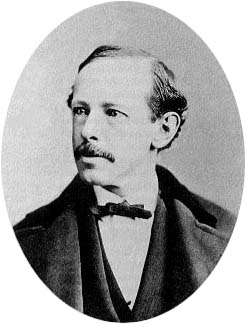Failure can become a weight or it can give you wings.
That is the message I hear every spring when I attend the Horatio Alger Awards Ceremony in Washington, D.C., where 10 new members are inducted annually. I was honored to be one of them in 2004. During the short speeches given by new members to the audience, which includes more than 100 scholarship students, the message I hear over and over again is – Don’t be afraid to fail.
 The Horatio Alger Association of Distinguished Americans is a nonprofit organization based in Alexandria, Va., that was founded in 1947 to honor the achievements of outstanding Americans who have succeeded in spite of adversity and to emphasize the importance of higher education. The association is named for Horatio Alger Jr., a 19th-century author of hundreds of stories in the “rags-to-riches” genre, extolling the importance of perseverance and hard work.
The Horatio Alger Association of Distinguished Americans is a nonprofit organization based in Alexandria, Va., that was founded in 1947 to honor the achievements of outstanding Americans who have succeeded in spite of adversity and to emphasize the importance of higher education. The association is named for Horatio Alger Jr., a 19th-century author of hundreds of stories in the “rags-to-riches” genre, extolling the importance of perseverance and hard work.
The association gives the annual Horatio Alger Award to people who exemplify its ideals. It also grants scholarships, and is one of the largest providers of need-based scholarships in the United States. All scholarships are funded by the generosity of Horatio Alger members and friends.
Among the more than 2,000 new scholarships it awards each year, the association presents its top scholarship, the National Scholarship valued at $25,000 to more than 100 students from every U.S. state and Puerto Rico. National Scholarship recipients are also given an all-expenses-paid trip to Washington, D.C. where they meet association members, attend the Horatio Alger Awards Ceremony, and learn about the federal government and the American free-enterprise system. Since the inception of its scholarship programs in 1984, the association has awarded more than $125 million in college scholarships to more than 25,000 young people.
Perhaps the most important lesson these young scholars learn is that failure is not fatal. They hear about pathways to success that include episodes of difficult times, the temptation to give up, and the persistence to carry on. The members reinforce that failure is merely an opportunity to start over again, wiser than before.
Inspired by these real-life success stories, combined with scholarship help and an amazing ready-made network of resources, these young people have opportunities to earn college degrees and jump start their professional aspirations.
And they will have a clear understanding that failure is not the end of the road. It is potentially a new entrance ramp to the highway of life.
No one sets out to fail intentionally. Still, failure happens – sometimes because of bad luck or uncontrollable circumstances, but other times from entirely preventable causes. Whatever your career goals or personal objectives are, your chances of avoiding failure will improve if you address these all-too-common errors:
- Wasting time. Planning is essential, but too much planning can consume the energy you need in order to execute your plan effectively. Set clear deadlines. Be realistic, but ambitious. Don’t obsess over getting every last piece of data before taking action.
- Excluding people. You don’t have to like all your co-workers in order to work with them. Don’t limit your partnerships and alliances to people who agree with you 100 percent. Be willing to bring in experts with different points of view, and listen to their opinions. You need honest feedback, not blind encouragement.
- Fighting the wrong battles. You’ve got to know when sticking to your position is going to be worth the time and energy, and when to back down in order to conserve your resources for the next confrontation. You don’t have to succeed all the time to win in the end.
- Ignoring the short term. Yes, you have to think about an endpoint that’s far in the future, but don’t focus on it so intently that you forget to generate results in the meantime. You won’t have the chance to succeed in the long run if you fail in the short term, so look for some significant initial wins you can point to as evidence that you’re on the right track.
- Playing it too safe. In order to succeed, you’ve got to be willing to fail. The people around you will catch on to your dislike of risk if you never take on a difficult project or an ambitious challenge. Don’t be reckless, but don’t shy away from hard work if you want your boss, or your teammates, to believe in you. No risk, no reward.
The heroes in Horatio Alger’s stories demonstrate that you can’t avoid setbacks and disappointments. As Robert F. Kennedy said, “Only those who dare to fail greatly can ever achieve greatly.”
Mackay’s Moral: Make your stumbling blocks your stepping stones.

